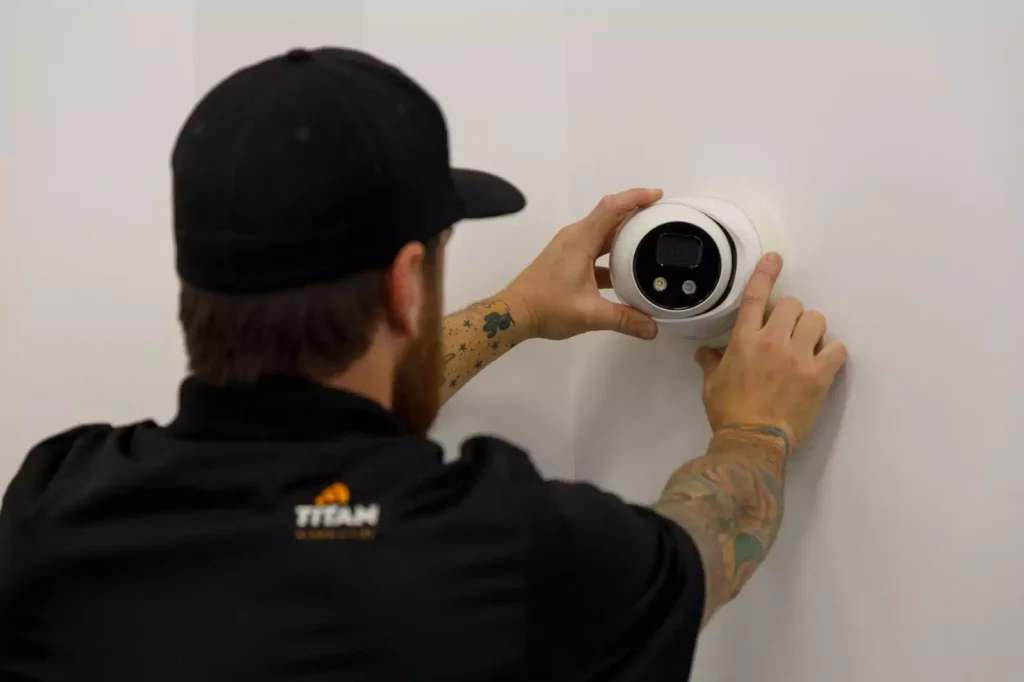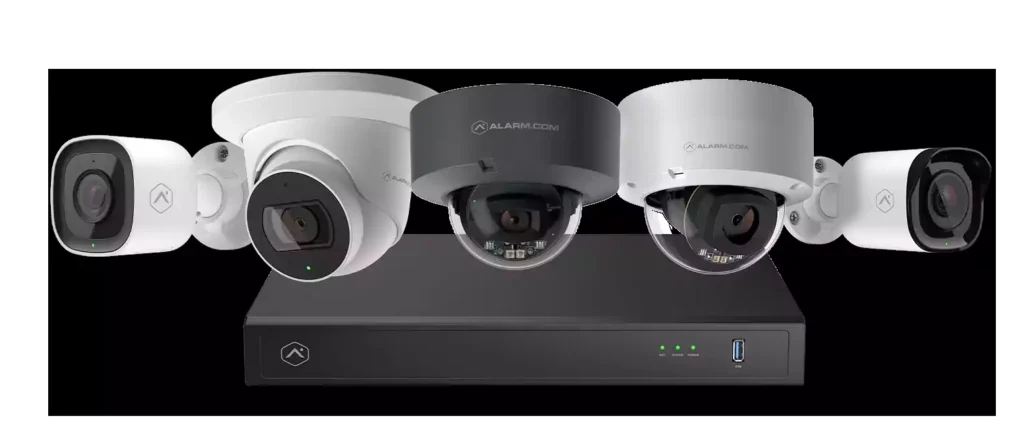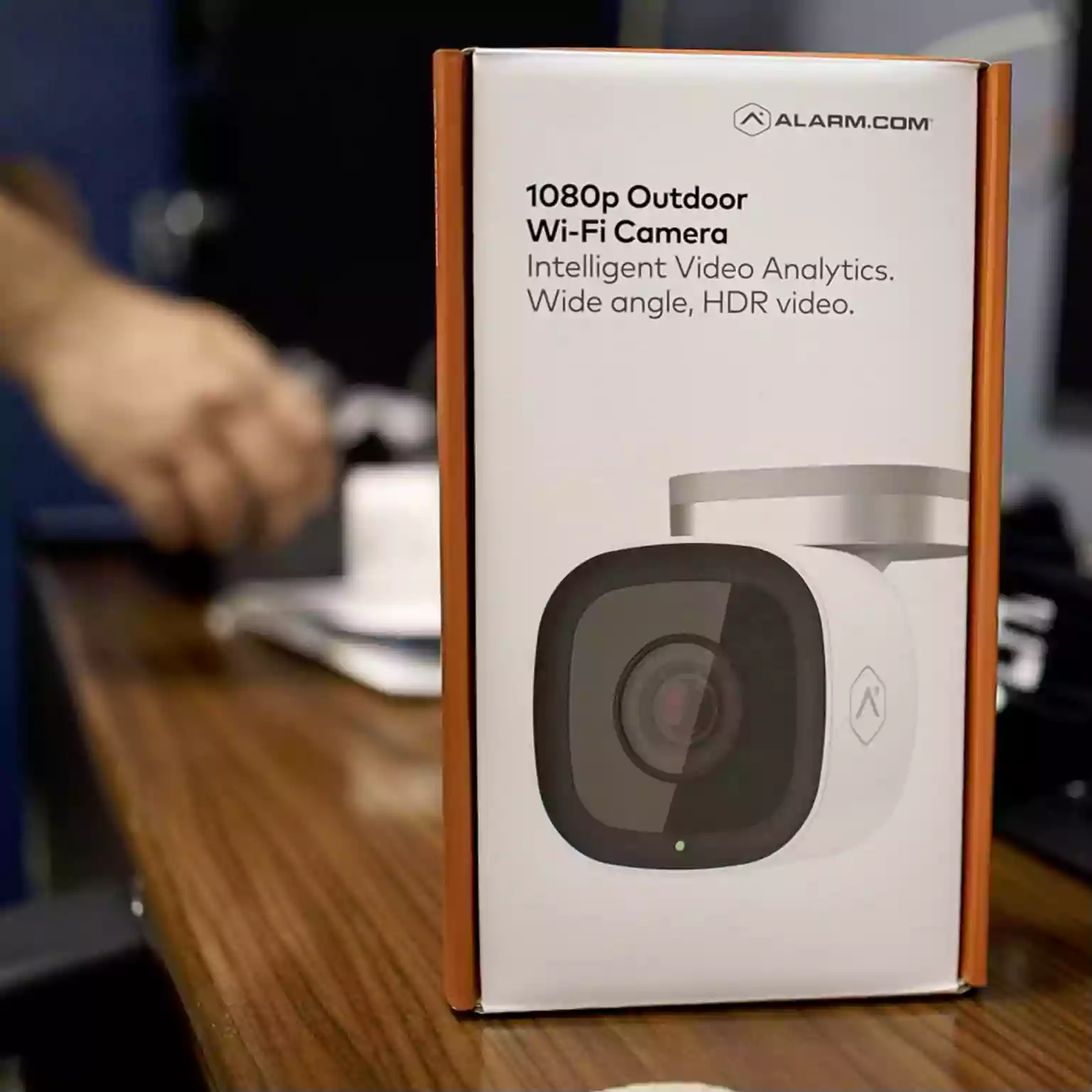If you’ve been thinking about upgrading your security system, chances are you’ve heard of IP cameras. But what exactly are they and how do they work? Well, great question!
Whether you’re a business owner in Phoenix, a store manager in Tucson, a restaurant owner in Scottsdale, or just looking to better protect your property anywhere in Arizona, understanding IP cameras can help you make smarter security decisions. At Titan Alarm & Fire, we install and service hundreds of IP-based camera systems every year, and we’re here to break it down for you.

What Is an IP Camera?
IP Camera stands for Internet Protocol camera. Unlike traditional analog CCTV cameras that transmit video over coaxial cable to a DVR (Digital Video Recorder), IP cameras transmit video data over a computer network, either wired (Ethernet) or wireless (Wi-Fi).
In other words, IP cameras are digital cameras that use your local network or the internet to send and receive data. They can record in high definition (HD) or even ultra HD (4K), and they offer many more features compared to analog systems.
Think of them like a mini-computer with a camera lens. They process video data on their own and offer intelligent features, remote viewing, and easier integration with other systems. Pretty cool, right?
How Do IP Cameras Work?
Let’s walk through how an IP camera works in a typical security setup:
- Video Capture – Like any camera, an IP camera starts by capturing video through its lens and sensor. What sets it apart is what happens next.
- Digital Processing Onboard – The camera processes the footage inside the device, converting analog video into digital data right at the source. Most IP cameras have built-in processors, encoders, and compression software (usually H.264, H.265, or MJPEG) that reduce the file size without crazy quality loss.
- Data Transmission – The digital video data is transmitted via your local area network (LAN) using Ethernet cables or wirelessly over Wi-Fi. It travels to one of the following:
- A Network Video Recorder (NVR), where footage is stored and managed.
- A cloud storage system for remote access.
- A mobile app or browser dashboard where you can view live feeds or recordings.
- Remote Access and Alerts – Because the system is network based, users can access live or recorded video from anywhere via smartphones, tablets, or computers. Many systems include motion alerts, push notifications, and video analytics to notify you of suspicious activity, or any other things you want to be notified about.
Key Features of IP Cameras
Here’s what sets IP cameras apart from older analog systems:
- Higher Resolution – IP Cameras can capture video in 1080p, 4MP, 5MP, or even 4K. This means you can zoom in and still see clear details, like faces, license plates, or customer transactions.
- Remote Access – Live feeds and recorded footage can be viewed remotely from apps or browsers. Perfect for business owners who want to keep an eye on things after hours.
- Smart Video Analytics – Many IP systems offer built-in intelligence systems such as the following:
- Motion detection
- People counting
- Line crossing alerts
- Facial recognition
- Object left/removed detection
These features help reduce false alarms and automate surveillance.

- Scalability – You can add more IP cameras to your system without requiring everything. This make it easy to expand as your needs grow down the line.
- PoE (Power over Ethernet) – With PoE technology, a single Ethernet cable can deliver both power and data to the camera, simplifying installation and reducing clutter.
- Cloud Storage & NVR Options – You can choose where to store footage, like on a network video recorder, in the cloud, or both for extra redundancy.
Types of IP Cameras
Not all IP cameras are built the same. There are many types, all built for different reasons. Here are some common types and their typical uses:
1. Dome Cameras
- Compact and discreet
- Often used indoors
- Tamper-resistant
- Great for restaurants, officer, or lobbies
2. Bullet Cameras
- Long-range and weatherproof
- Ideal for outdoor use (parking lots, alleyways, perimeters)
- Easily visible, often used as a deterrent
3. Turret (Eyeball) Cameras
- Similar for dome cameras but easier to install and reposition
- Less glare or reflection issues
- Good for both indoor and outdoor use
4. PTZ Cameras (Pan-Tilt-Zoom)
- Remote control over camera movement
- Can cover large areas like warehouses or school campuses
- Some models auto-track moving subjects
5. Fisheye or 360° Cameras
- Provide wide panoramic views
- Ideal for retail stores, banks, or large open areas
- Can be de warped digitally for clarity
How to Choose the Right IP Camera System
Before choosing your setup, ask yourself the following questions:
- What areas do I need to monitor? (Indoors, outdoors, specific rooms, etc.)
- Do I need high resolution? (For facial recognition or license plates)
- How will I store footage? (Cloud vs Local)
- What level of smart features do I want?
- How many cameras do I need now and in the future?
At Titan Alarm & Fire, we offer on site consultations to help design the best system for your layout, budget, and long term needs.
Professional Installation vs DIY
While it’s tempting to order a camera off of Amazon and try to mount it yourself, here’s why professional installation is often the smarter route in the long run:
- Code Compliance – We ensure that your security setup complies with local fire and building codes.
- Clean Wiring – Our techs conceal wires and install PoE switches for a professional finish.
- System Integration – We’ll tie your cameras into your alarm, fire system, access control, and/or monitoring service.
- Ongoing Support – Need help adding more cameras? Troubleshooting? We’re just a call away. Just FYI, our service team is the best in Arizona.
Some Final Thoughts
IP cameras are more than just a high tech trend. They’re a powerful tool for securing your business, protecting your people, and giving you peace of mind.
Whether you’re protecting a restaurant, an office, some warehouses, or retail shops, a well-designed IP camera system gives you eyes on what matters most, anytime, anywhere.
If you’re ready to upgrade your surveillance system, Titan Alarm & Fire can help. We offer professional installation, system design, and 24/7 support right here in Arizona.

